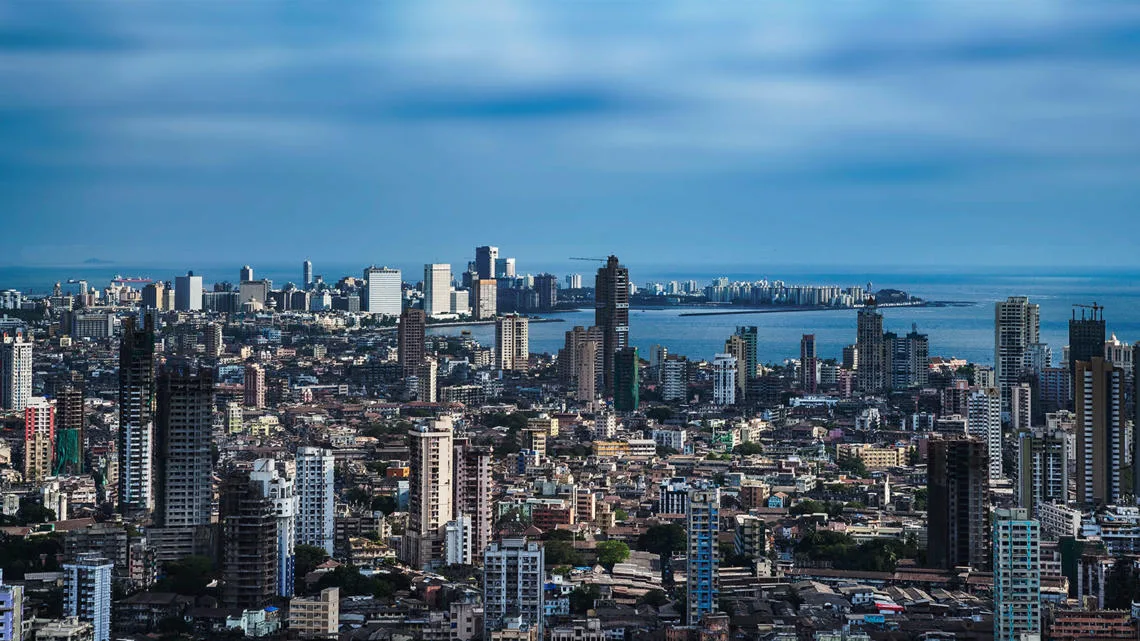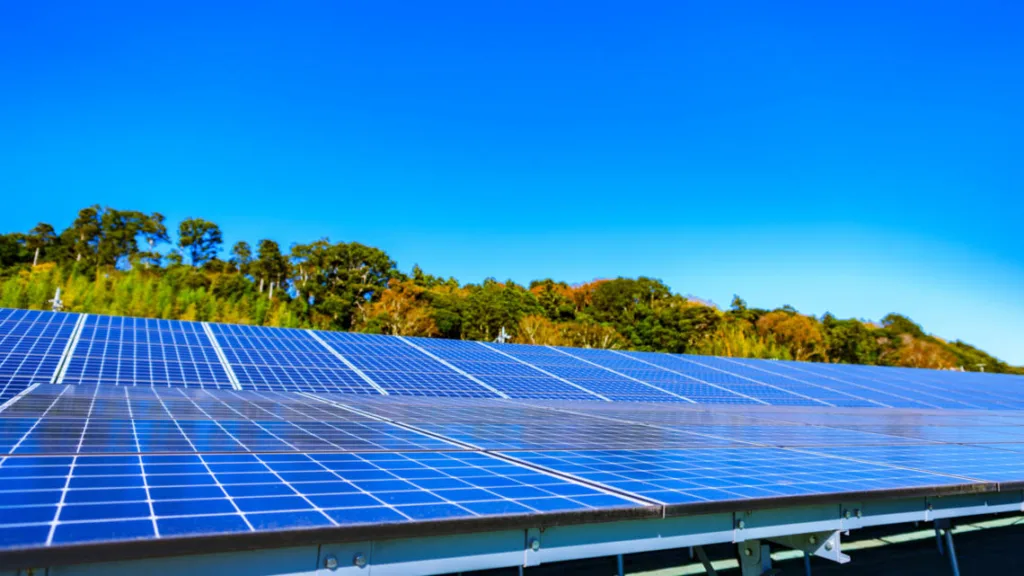Authors
Joe Phelan
WBCSD India Director, Joe Phelan, shares his views on sustainability in India and the role of business going forward
Business as usual cannot continue. The climate emergency, increasing social inequality and the mass extinction of animals and disruption of entire ecosystems are real and ready threats to our existence.
Transforming the systems that govern our world is the only way that we can address these challenges and reach net-zero greenhouse gas (GHG) emissions by 2050. And for that, we need unprecedented collaboration and action between businesses, investors and government.
India is at the center of this transformation. Already home to one-sixth of the world’s population, it will be the most populous country by 2030 and it is widely understood that India will play a leading role in determining the relative success or failure of the Sustainable Development Goals (SDGs). It is a rapidly growing economy, with a huge domestic market and an important role in global supply chains. Currently a USD$ 2.72 trillion economy, the government has set the target of the country to become a USD$ 5 trillion economy in GDP terms by 2024.
It is the world’s second-largest producer of food by calorie content, and home to the 10 fastest growing cities. India energy demand could double by 2040 with electricity demand potentially tripling as a result of increased appliance ownership and cooling needs.
However, India is also highly vulnerable to the effects of climate change, where increasing average temperatures and changing rainfall patterns are already having a significant impact on the economy. The UN Office for Disaster Risk Reduction estimates that India has suffered USD $79.5 billion in economic losses since 2000 due to climate-change disasters.
Coupled with this, India still has significant issues relating to clean water, nutrient-rich food, education and basic healthcare, which remain urgent priorities for much of the population.
As Director of WBCSD India, Joe Phelan works with Indian member companies to achieve the climate action and systems transformation that is needed to achieve the SDGs and ensure an inclusive transition to a sustainable world. The India office of WBCSD provides members with a platform for greater insight, impact and advocacy in India and globally.
Joe, can you tell us why India is so significant when we talk about climate change and sustainability?
India has more to gain by tackling climate change and more to lose if global efforts fail.
People in India are already feeling the effects of the climate crisis. India has already warmed by 1.2 degrees compared to the global average of 1 degree. It is experiencing more extreme weather events than the global average, and when they occur, they cause more human and financial damage than elsewhere. This is driven by its geography and stage of economic development. India has a long coastline, large semi-arid areas and is dependent on the monsoon and ice melt for water. In addition, socio-economic factors such as population density, dependence on agriculture and economic inequality have an additional impact.
However, this decade is a time of transformation. I strongly believe that India can and will be at the center of these transformations, driven by technology and shaped by sustainability principles.
India’s energy demand will rise exponentially in the next 20 years. Powering this growth through renewable energy can boost India’s competitiveness and make clean electricity available to millions of households.
Finding effective ways to deal with legacy assets will be critical in the global efforts to move away from coal. And with many of Indian cities still largely to be built, making them green, and switching mobility to electric forms and improving food systems will transform living standards across the country.
Businesses in India have a critical role to play in shaping these transformations to build India’s competitiveness and inclusivity, and the opportunity to provide a low-carbon environment for growth that helps secure resilient livelihoods and profits. Companies that prioritize India’s sustainable development in their growth strategies stand to benefit in the coming decade.
What role do you think businesses in India can play in driving ambitious climate change action?
Businesses are already playing a major role but there is room to do a lot more. Leading companies are basing their action around three deliverables:
- understanding the physical risks to their operations and supply chains
- understanding the business opportunities as the economy strives to achieve carbon neutrality, and
- making this transition meaningful for key stakeholders beyond the company.
Adopting Science-based Targets (SBTs) or Science-based Target initiatives (SBTis) is the new norm for sustainable businesses and I am pleased to say that India companies are leading the movement with France, Japan, the UK and the US in corporate climate action.
India is the developing economy with the greatest number of companies committing to an SBTi. According to CDP India’s Annual Report 2019, a total of 38 companies have committed to an SBTi since December 2019, which is up from 25 companies the previous year. Additionally, there has been a drop in the emissions reported by these companies in 2019 – which is a clear result of the reduction initiatives they have undertaken.
The percentage of companies disclosing their information on climate-related risks and opportunities has also increased since the Task Force on Climate-related Financial Disclosures (TCFD) recommendations in 2017. However, this progress needs to be accelerated – we strongly encourage more business to use the TCFD recommendations as a framework for reporting on climate-related risks and opportunities.
Finally, we need to push for the standardization of ESG information that businesses use for disclosure to investors and other stakeholders. The World Economic Forum’s work on ESG standardization is a good starting point for businesses. The current fragmentation of KPIs, reporting frameworks, surveys, ratings and benchmarks, makes comparability of information impossible and thus ineffective.
There is much more to be done. Businesses must ramp up their actions and signal to governments that they need the policy ambition to give them the confidence to invest in a zero-carbon future. We need to rise to the challenge of building a prosperous and sustainable low-carbon future. We must see raised ambition across businesses and governments to scale up climate action towards a carbon-neutral economy.
The work that the WEF is doing on ESG standardization should be the start of a revolution in the corporate reporting space. Fewer indicators that are materiality-based and aim to create comparability will enhance the capital market inclusion.
Could you give us some examples from WBCSD Indian member companies and their sustainable business practices?
All our member companies are deeply committed to transforming their businesses and establishing sustainable practices throughout their supply chain. Some selected examples from our members include:
- Aditya Birla Group’s extensive work on “<2 C Futures” and how businesses must fundamentally alter and adjust processes to survive in a hotter world and ensure resilience.
- Godrej Group’s ‘Greener India’ initiative makes sure that environmental sustainability is a key part of the entire value chain. They have succeeded in reducing the specific GHG emissions by 51% and more than half of their energy consumption is from renewable sources.
- ITC’s landmark e-Choupal has successfully created a more efficient supply chain and tackles issues such as fragmented farms, weak infrastructure and the involvement of numerous intermediaries.
- Mahindra Group has been a key player in transforming mobility through their manufacturing of electric vehicles (EVs) and aligning with India’s vision of large-scale adoption of EVs in the commercial and personal segment by 2030.
- UPL’s technological innovations that also draw on indigenous solutions have tackled various issues through the food supply chain, from increasing yield to tackling food waste.
- Tata Group has been actively implementing Circular Economy principles through their “closing the loop” initiatives for resource efficiency such as sustainable packaging, producing fertilizers through waste and unlocking the value of their industrial by-products such as fly ash, road construction.
- Reliance Industries recently launched a project to tackle plastic waste in India by supplying waste plastic for road construction. They have started their own and outsourced garbage collection and segregation to aid this process.
How can WBCSD help businesses in India build a sustainable future?
2020 is being described as a “super-year”. It is time for us to set the course of our future. Many challenges lie ahead of us. As our President and CEO, Peter Bakker, writes, we have an exciting journey ahead of us, and many opportunities for business leaders to pave the way for a sustainable future.
At WBCSD, we are very excited to support our member companies across the entire journey of systems transformation: from identifying climate risks and setting SBTs, re-thinking energy strategies, investing in natural climate solutions through to driving and accelerating policy action.
There are numerous India-based projects currently underway such as REmobility (accelerating EV adoption), PPA Forum (corporate renewable energy procurement), Food and Water (facilitating and engaging in multi-stakeholder platforms on water and developing a pathway for Farm of the Future) and supporting members on their sustainability reporting to improve business decision-making and external disclosure.
There is a great value for Indian companies to engage with organizations like WBCSD. We look forward to supporting our Indian members to build the capability of their sustainability, risk, legal and procurement teams. Together, we work on projects that have positive impacts on sustainable development and the company’s success. We provide companies with access to a global network of peers and we amplify their voice at a global level to accelerate the transition to a sustainable world.
Although there has been progress, there is much more that needs to be done so that 9+ billion people can live well and within the boundaries of the planet by 2050. For this reason, we are working on a refresh of our Vision 2050, which acts as a blueprint for this sustainable future.
We aim to launch the new Vision 2050 in Tokyo this October, and we look forward to sharing the outcomes of this project with everyone. Through Vision 2050 we can drive a renewed, collective, positive business action and leadership action for decades to come.
Through 2020 and beyond, WBCSD looks forward to helping companies deliver sustainable solutions, technologies, innovations and partnerships throughout this decade of delivery. Together, we can build an equitable, prosperous and sustainable future.
WBCSD news articles and insights may be republished in accordance with the Creative Commons Attribution-NonCommercial-NoDerivatives 4.0 International Public License, and in accordance with our Privacy Policy. All Content must be featured with due credits.


